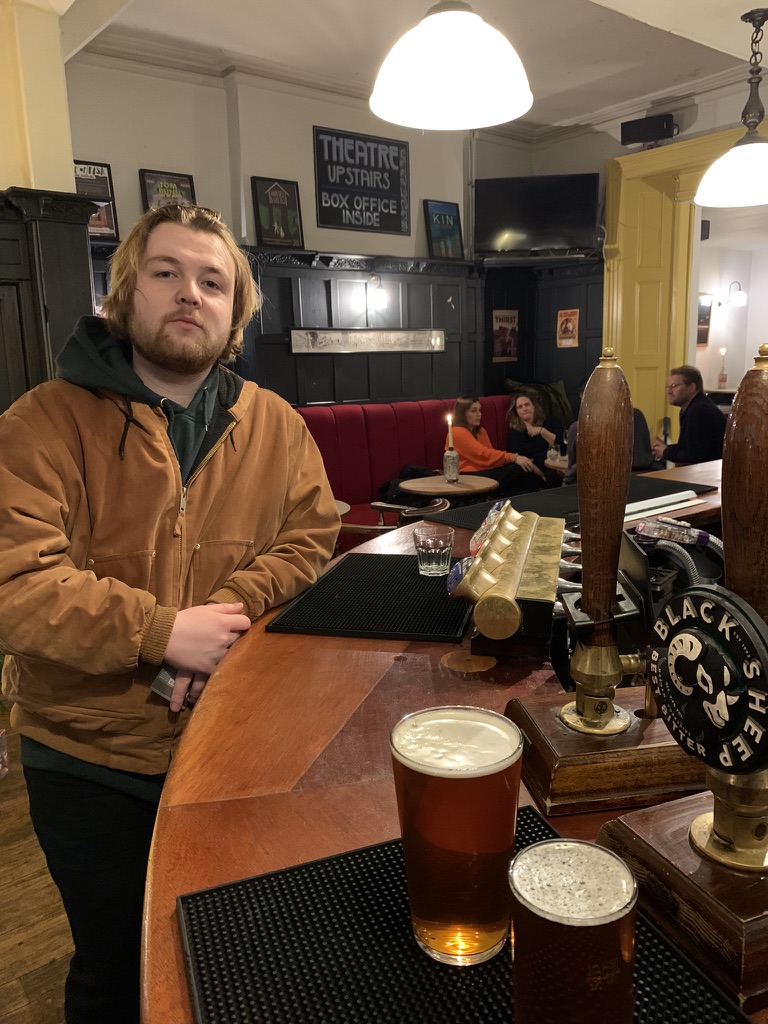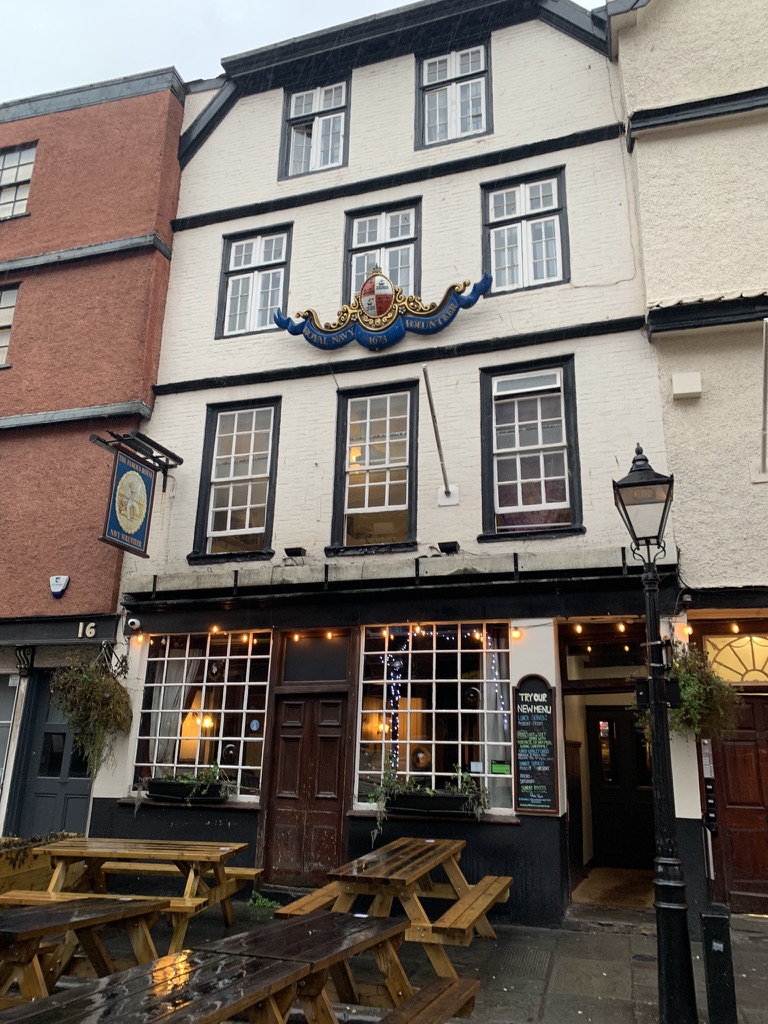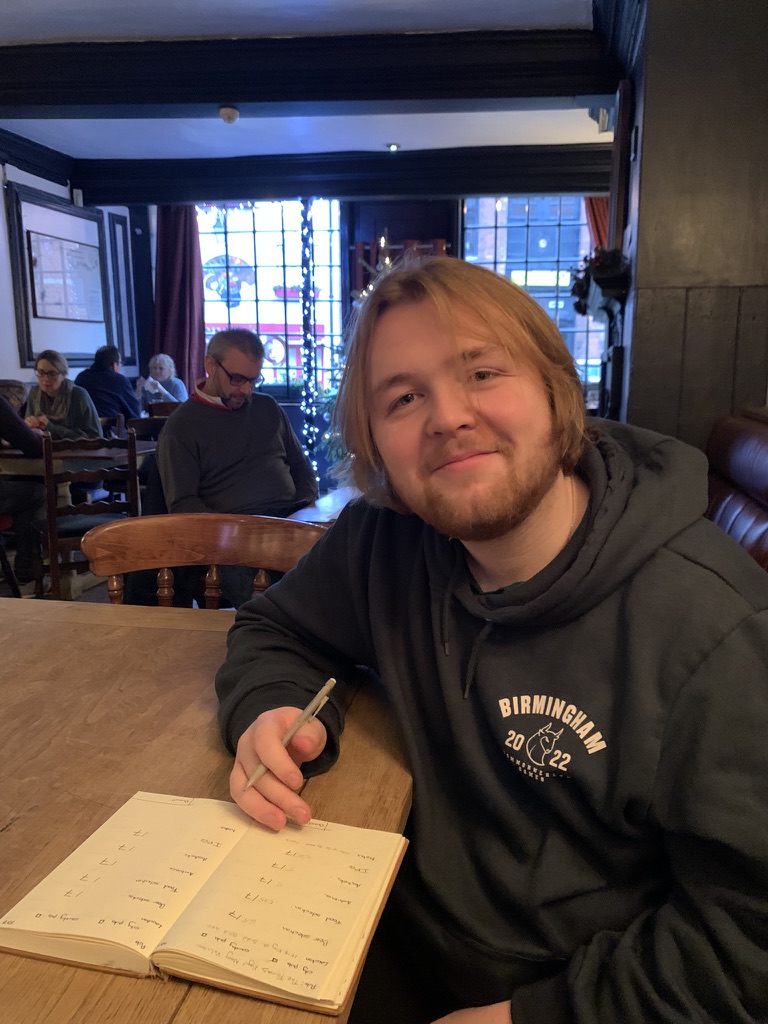One of the many joys of travelling around the country supporting a football team is the cyclical nature of the annual fixture list. The EFL schedule offers up the perpetual opportunity to revisit the towns, spots and haunts which come to mean so much to you over the course of your life. As such, my chosen weekend hobby offers a constant vein through which to connect to my own past, which of course, includes the pubs which have come to play a part in that story.
This fact was hammered home to me over the Christmas period, as the (happily in form) West Bromwich Albion’s fixture list threw up the tantalising prospect of a Boxing Day visit to Bristol.

I spent three incredibly happy years in Bristol between 2015 and 2018 as I completed my undergraduate degree. For me, it was a simpler time, when I got to immerse myself in the study of history I found exciting – the deep study of the Crusades, Colonial Urban History and the History of Sport. It was a rare period of my life when I got to truly live hedonistically and commit valuable hours of my time to passion projects such as a football podcast and my beloved indie rock band (still going strong under the name Idle Noise, even without their handsome drummer).
But most of all, Bristol stands as the city which completely changed my perception of and relationship with pubs.

When I arrived in the city as a wide-eyed and naive nineteen year old, I was much less well read – and frankly less concerned – about the richness of British pub culture. The pub for me was simply a backdrop, a stage against which the real business played out: pinching pennies over cheap beers, socialising, dodging rounds, playing pool and getting sufficiently hammered to muster the confidence to throw some shapes on the dancefloor.
Whilst I was in Bristol, two things changed that. The first was academic. In my second year, I took a unit as part of my history course – entitled “Alcohol: A History”. This was a longue durée, sweeping, global history of the development of global drinking culture, and by far, the most thrilling aspect of the course (apart from our visits to distilleries, breweries and pubs around the city – drinking on the clock!) was its brilliant four week study of the development of modern Britain pub culture, starting in mediaeval Europe, and culminating in the burgeoning craft movement in Britain today. Engaging with the pub in an academic setting changed a lot for me. The university’s decision to platform pubs as legitimate subjects of study placed pubs firmly in the realm of culture – and my avid reading of brilliant pub historians like Pete Brown – set me on my obsessive path of guzzling all the literature about pub culture I could find.
More crucial, was my actual lived experience in Bristol’s pubs – firstly in and around Clifton and Redland, latterly in the city centre down the famous King Street. Growing up in a crap town in the Midlands, I’d never been anywhere with such a diverse pub ecosystem, and more importantly such a strong drinking identity (linked to the region’s strong cider brewing culture). Armed with my academic appreciation of the cultural development of pubs, these institutions came to transcend their (incredibly) valid role as staging posts for my whippersnapper antics, and became the way through which I came to understand Bristol’s history and identity, and even more crucially, experience the city in a social and cultural sense.
Heading back to Bristol a few weeks ago, I was unsure what to expect. After so long away, I found exploring the city on those cold and rainy December a disquieting, and slightly alienating experience. Gone were the familiar faces (frankly – gone were the people, it was pissing it down and Boxing Day – everyone was staying indoors!) gone was the university buzz, and – most depressingly – gone was the truly innocent, youthful and idealistic outlook which I had when I first experienced the city.


However, amidst all of the flux and change which struck me upon my return, it was the pubs of the city which were the emotional vessel, which enabled me to connect to and re-immerse myself in Bristol itself, almost as if it were an open-air museum. In reality, my life in Bristol is dead. My undergraduate studies expired 5 years ago, my friends have all moved away and my impulse for cheap Tuborg and nightclubs has long since diminished.
I suppose my point is that – perhaps unsurprisingly given my history with Bristol – my experience in the city’s pubs was once again educational. After so many years away, Bristol’s pubs showed me the power pubs have in terms of anchorage. In a vibrant and constantly transforming city like Bristol, the drinking haunts that provided my student life with a sense of meaning, sociality and in a wider sense, structure, remained steadfastly similar.
In that sense, though the rest of the city itself may render itself unrecognisable to me over time, the constancy and unchanging nature of Bristol’s pub will provide me a space to recognise my own past, and reconnect to my own history, as long as they remain standing. In a wider sense, I suppose they’ll provide me the anchor with which to connect to Bristol itself.

As I continue to age and my life transforms (and I appreciate, as a 26-year-old man – these type of posturing, world-weary reflections on the nature of age may appear laughable to some of our older readers), aspects of culture which anchor me in a specific time and place are increasingly valuable to me. Above all else, my recent visit to Bristol was an exercise in showing me just how vital pubs are to me, in that process of social anchoring, which stops us all from losing important pieces of ourselves.
